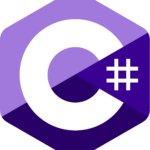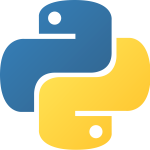Hire remote C++ developers that you can trust
Hire C++ developers from a unique network of 50,000+ pre-vetted offshore talents from Europe and Latin America, looking for a full-time contract. YouTeam developers stand apart for their ability to think like product managers and act like software architects. We also manage everything, so there’s zero overhead for your company.
Hire developers196 best C++ developers for hire on YouTeam in February 2025

Yuri
C Developer
Dmytro
Senior DevOps Engineer
Oleksandr
Java Developer
Luis
Seasoned ML & CV Engineer
Fernando
Electronic Engineer
Oleh
Full-Stack Engineer
Beenelvi
Software Engineer
Rostyslav
Senior Embedded C/C++ Engineer
Serhii
Senior Unity/AR Developer
Kenan
Embedded Systems DeveloperStart hiring to
see all talent
Hire
developers

Best Developer
Embedded Systems DeveloperTrusted by Fortune 500 companies and Y Combinator startups
Why hire C++ developers with YouTeam
 48-hour personalized matching
YouTeam handpicks the best-matched candidates.
48-hour personalized matching
YouTeam handpicks the best-matched candidates.
 Zero overhead
Locally-compliant contracts and billing
Zero overhead
Locally-compliant contracts and billing
 Dedicated white-glove support
Dedicated white-glove support






How to hire C++ developers with YouTeam
Share your requirements Set up a quick call with one of our Matching Experts — your dedicated contact at YouTeam.
Undergo Personalized Matching Your Matching Expert curates a candidate list, conducts pre-interviews, and ensures a perfect match for your needs—covering developers' skills, tech stack preferences, interests, and personality.
Meet the right candidates Review a list of candidates screened specifically for your request and pick the best for the interview stage. Average interview-to-hire ratio on YouTeam platforms: 1.75.
Hire and work with confidence YouTeam automates contract signing and invoicing through its secure system. Your dedicated Matching Expert stays with you throughout the collaboration with contractors.

Find developers skilled in related technology
More technologiesRead about C++ on our blog
 What You Should Know Before Hiring a C++ Developer in 2024
What You Should Know Before Hiring a C++ Developer in 2024
Svetlana Shevchuk
 C++: 10 Must-Ask Interview Questions (+Expected Answers)
C++: 10 Must-Ask Interview Questions (+Expected Answers)
Svetlana Shevchuk
About C++
- An overview of C++ features and advantages
- Key applications of C++
- Essential C++ development tools for modern software engineering
- What does a C++ developer do?
- C++ developer experience levels: Understanding junior, mid-level, and senior roles
- Tasks and responsibilities of C++ developers
- Essential skills for a C++ developer: What to look for
- Types of C++ developers: Choosing the right hiring model
- How to write a C++ developer job description?
- C++ developer technical skills assessment questions
C++ was developed as an extension of the C language in 1979. It is based on object-oriented programming principles, which promote high levels of code reusability. C++ gives developers substantial control over system resources and memory management. Programs written in C++ are statically typed, meaning that variable types are determined at compile time, and the language is case-sensitive, which means that identifiers like variable names must be used consistently in terms of case.
C++ is a versatile, multi-paradigm cross-platform language known for its ability to create high-performance applications. It is widely used across various industries and technologies due to its speed and efficiency. Here are some of the key areas where C++ is commonly utilized:
Graphical User Interfaces (GUIs)
C++ is often used in the development of graphical user interfaces, providing the foundation for software that requires high responsiveness and performance.
Embedded systems
C++ is prevalent in embedded systems, which are found in devices like medical instruments, home appliances, and industrial automation systems. Its ability to run close to the hardware makes it ideal for these applications.
Operating systems
Many operating systems, including major ones like Windows, macOS, and Linux, are built using C++. Its power and efficiency make it a preferred choice for developing OS kernels and system-level software.
Internet of Things (IoT)
C++ is widely used in IoT devices such as cars, smartwatches, TVs, and other connected devices. It provides the necessary performance and control to manage the complex operations of these smart devices.
Game development
C++ is one of the most popular languages in game development. Major game titles like World of Warcraft, Counter-Strike, and StarCraft are built using C++, thanks to its ability to handle high-performance graphics and real-time processing.
Game engines
Not only game development but also gaming engines that power popular consoles like PlayStation, Xbox, and Nintendo Switch are all based on C++.
Web browsers
C++ is used in web browsers, including Google Chrome, Mozilla Firefox, Opera, and Safari. Its speed and efficiency make it ideal for rendering web pages and managing the heavy lifting required by modern browsers.
C++ continues to be a critical language across various high-demand fields, thanks to its performance, versatility, and extensive ecosystem.
There are a number of versatile and useful development tools that can be used while developing apps in C++. Here are some of them:
Microsoft Visual C++
Visual C++ is a free interactive development environment that supports Windows, iOS, and Android. It is the most popular development software in the C++ niche today. It also provides support for languages like NodeJS, Python, and C#.
Boost
Boost is a collection of sample libraries that helps in the development of cross-platform applications using C++ and works very well with the Standard Library in C++. Its libraries provide direct support for image processing, linear algebra, multithreading, and unit testing.
QT
QT is an open-source widget toolkit that enables software developers to build graphical programs that can work on Windows, Mac OS, Linux, and even Android without a lot of changes. QT can also be of use if you like terminal and console interfaces.
Eclipse IDE
Eclipse is a widely used IDE for the development of programs in C++ and C. It is also used by Java developers for coding in the same language. Eclipse supports development frameworks for different toolchains and source navigations. It boasts of having a number of powerful features that can be used in full-fledged development projects.
A C++ software developer designs and develops programs based on the C++ language. The applications can be used on a variety of devices, and range from video games, operating systems, web development, and IoT devices. They are responsible for finding the requirements of the program, writing and implementing the code, and overseeing its deployment. Once the app is being used by others, these developers are also responsible for maintaining the code and fixing any bugs or glitches that might be there.
When hiring C++ developers, it’s crucial to understand the distinct requirements and expectations associated with junior, mid-level, and senior roles. Each level brings unique skills and expertise essential for different project demands.
Junior C++ Developer:
A junior C++ developer typically has foundational knowledge of C++ and is beginning their journey in software development. They should be familiar with basic programming concepts, object-oriented programming (OOP) principles, and common C++ libraries like STL (Standard Template Library). While they may not have extensive project experience, they should demonstrate a strong willingness to learn and adapt. Junior developers are often involved in simpler tasks, such as debugging code, writing unit tests, and assisting with code reviews. It’s also beneficial for them to have a grasp of development tools such as Git and basic understanding of integrated development environments (IDEs) like Visual Studio or Code::Blocks.
Mid-Level C++ Developer:
Mid-level C++ developers typically possess several years of experience and a deeper understanding of the language. They should be proficient in advanced C++ features such as templates, exceptions, and smart pointers. Additionally, they must be comfortable with performance optimization techniques, memory management, and multi-threading. Mid-level developers are expected to handle more complex tasks, including system design, algorithm development, and contributing to architecture decisions. They should also have experience with development methodologies (like Agile) and version control systems, as well as the ability to mentor junior developers and participate in code reviews.
Senior C++ Developer:
Senior C++ developers are experts with extensive experience and a comprehensive understanding of both the C++ language and the software development lifecycle. They are expected to have mastery over advanced C++ concepts and design patterns, as well as knowledge of performance profiling and tuning techniques. Senior developers often lead project teams, making architectural decisions, conducting design reviews, and ensuring code quality through rigorous testing practices. Additionally, they should possess strong communication skills to effectively collaborate with stakeholders, provide technical guidance, and mentor junior and mid-level developers. Familiarity with related technologies, such as CMake for build management and various operating systems (like Linux and Windows), is also essential.
C++ developers play a vital role in software development, using their expertise to build efficient and high-performance applications. Their key responsibilities typically include:
1. Designing and Developing Software: C++ developers create software applications and systems, focusing on designing algorithms, writing code, and implementing object-oriented programming principles to enhance reusability and maintainability.
2. Performance Optimization: They analyze existing code and identify areas for improvement, optimizing algorithms and data structures to enhance application performance and efficiency.
3. Debugging and Testing: C++ developers conduct thorough testing, including unit testing, integration testing, and performance testing, to identify and fix bugs. They use debugging tools like GDB and integrated development environments (IDEs) to streamline this process.
4. Code Documentation: Maintaining clear documentation is essential for C++ developers. They document the development process, APIs, and user manuals to ensure code maintainability and facilitate collaboration with other developers.
5. Collaboration with Cross-Functional Teams: C++ developers often work closely with other team members, including project managers, UX/UI designers, and quality assurance testers, to ensure that software projects align with business goals and user needs.
6. Database Integration: They integrate databases with applications, using SQL or other database management systems to design and implement data storage solutions that meet application requirements.
7. Research and Implementation of New Technologies: Staying current with advancements in C++ and related technologies is crucial. Developers regularly engage in research and learning to implement the latest best practices and frameworks into their projects.
8. Handling System-Level Programming: Many C++ developers also engage in system-level programming, interfacing with hardware or operating systems to build applications that require direct manipulation of system resources.
When hiring a C++ developer, it’s crucial to identify the specific skills that contribute to their effectiveness in creating robust, efficient, and high-performance software. Here are the most commonly sought-after skills for C++ developers:
1. Proficiency in C++ Programming: A deep understanding of C++ syntax, semantics, and its standard library is fundamental. Developers should be well-versed in object-oriented programming (OOP) principles, including encapsulation, inheritance, and polymorphism.
2. Strong Problem-Solving Skills: C++ developers must possess strong analytical skills to troubleshoot issues, optimize code, and implement efficient algorithms. They should be adept at breaking down complex problems and devising effective solutions.
3. Experience with Data Structures and Algorithms: Knowledge of various data structures (such as arrays, linked lists, trees, and hash tables) and algorithms (sorting, searching, etc.) is critical for developing efficient software. This understanding helps in optimizing performance and resource management.
4. Familiarity with Development Tools: Proficiency in using Integrated Development Environments (IDEs) such as Visual Studio or CLion, along with debugging tools like GDB, is essential for efficient coding and troubleshooting.
5. Understanding of Memory Management: C++ provides fine-grained control over memory allocation and deallocation. Developers should be skilled in manual memory management techniques, including pointers, references, and dynamic memory handling, to prevent leaks and ensure optimal performance.
6. Cross-Platform Development Skills: Many applications require compatibility across different operating systems. Familiarity with cross-platform development frameworks and tools is valuable for C++ developers working on multi-platform projects.
7. Knowledge of Software Development Methodologies: Understanding Agile, Scrum, or DevOps methodologies helps C++ developers work effectively within teams and manage their tasks efficiently. Familiarity with version control systems like Git is also beneficial for collaborative coding.
8. Experience with Databases: C++ developers should have a solid understanding of database management systems and SQL to integrate data storage solutions into their applications effectively.
When it comes to hiring C++ developers, the selection largely depends on your specific needs and the hiring model you choose. Here are the three main hiring models to consider:
Freelancers
Freelancers are ideal for short-term projects where the requirements are clear and well-defined. They typically do not need an in-depth understanding of the project, allowing for quicker onboarding. However, since freelancers often juggle multiple projects, they may not be fully invested in yours. Additionally, finding the perfect match for your project on freelance platforms can be time-consuming.
In-house Engineers
In-house engineers are best suited for companies that require ongoing software support and maintenance for core products. While this option can be more expensive due to costs like salaries, bonuses, and health insurance, the primary advantage is their dedication to the project. In-house developers are fully committed to the company’s goals and can provide a deeper understanding of the product and its evolution.
Outsourced Programmers
Outsourced C++ developers, often located offshore, allow you to tap into global talent at a lower cost. You can hire individual engineers or entire development teams from agencies, or even augment your existing team with full-time contractors through platforms like YouTeam. Given the current shortage of quality talent in the USA, outsourcing is an increasingly relevant solution for fulfilling project needs efficiently.
By understanding these different types of C++ developers, you can make informed hiring decisions that align with your project requirements and budget constraints.
When crafting a job description for a C++ developer, consider these key points:
1. Job Title: Specify the level of expertise (e.g., Junior, Senior).
2. Company Overview: Briefly describe your company and the projects involved.
3. Responsibilities: Outline main tasks, such as:
- Designing and implementing C++ applications
- Conducting code reviews and debugging
- Collaborating with teams
- Writing documentation
4. Required Skills: List essential technical skills, such as:
- Proficiency in C++ and object-oriented programming
- Familiarity with tools and libraries (e.g., Boost, STL)
5. Soft Skills: Highlight important interpersonal skills like:
- Strong problem-solving abilities
- Effective communication
6. Application Process: Detail how candidates can apply, including required documents.
7. Benefits: Mention any perks, such as flexible hours or professional development opportunities.
When hiring C++ developers, it’s essential to screen their technical skills effectively. Here are some sample questions to assess a candidate’s proficiency:
- What is operator overloading in C++?
- Explain friend classes and friend functions in C++.
- Given the GPA of n students, can you write a C++ program to store and display it?
- Define the copy constructor in C++. What are the function prototypes, and in what scenarios is it called?
- Is it possible for a C++ program to compile without a main() function?
- What are the different types of polymorphism in C++?
- Output-based questions: Have the candidate evaluate a block of code and predict its output.
- Error identification: Ask the candidate to examine a block of C++ code, identify errors, and suggest solutions to make the program functional.
This approach will help you gauge both the technical expertise and problem-solving skills of potential candidates.
FAQ about Hiring C++ developer
Why choose YouTeam to hire C++ developers?
YouTeam offers access to a highly qualified pool of C++ developers, helping you scale your team quickly. Each developer is thoroughly vetted, ensuring their skills, experience, and reliability. With partnerships across 500+ development agencies and over 50,000 developers, you can receive qualified candidates within 48 hours, making it a fast and reliable solution for your hiring needs.
How does YouTeam vet C++ software developers?
YouTeam follows a multi-stage vetting process. First, developers are sourced from trusted development agencies, ensuring they meet the necessary skill and experience requirements. Pre-screened candidates are then forwarded to clients for further interviews, allowing them to select the best fit based on specific project needs.
How much does it cost to hire the best C++ developers through YouTeam?
The cost of hiring C++ developers on YouTeam varies based on factors like expertise, location, and skills. On average, a C++ developer through YouTeam charges around $51 per hour, though rates can fluctuate depending on specific project requirements.
How quickly can you hire with YouTeam?
With YouTeam, you can hire developers faster than traditional methods. Here’s why:
1. Shortlist in 48 hours: Powered by our AI Matchmaker and human experts, we deliver a tailored shortlist of vetted candidates within just 48 hours.
2. Larger talent pool: As a marketplace, YouTeam offers access to a broader range of developers from hundreds of partner agencies, giving you more options than typical outsourcing agencies.
3. Seamless process: From the moment you request a call, our Matching Experts handle the rest, ensuring you quickly receive top-quality candidates who match your precise requirements.
With YouTeam, our clients have been able to build development teams within just a few weeks, not months.
What is the no-risk trial period for YouTeam developers?
• 1-Month Trial: You can terminate the engagement at any time during the first month.
• Free Replacements: If you’d like to replace a contractor, we’ll do it within two weeks, free of charge.
You can learn more by reading our Money-Back Guarantee.
How is YouTeam different from freelance portals for hiring C++ developers?
Unlike freelance platforms, YouTeam connects you with developers from trusted software development agencies, not freelancers. This ensures that developers have the necessary technical and soft skills, along with relevant experience. If a developer needs to be replaced unexpectedly, YouTeam can quickly provide a substitute of equal skill to avoid project delays.
How Is C++ developer salary different, and why?
C++ developer salaries vary significantly based on location, expertise, and industry. In the United States, the average annual salary for a C++ developer is around $115K, with tech hubs like San Francisco and New York offering salaries exceeding $140K due to the higher cost of living. In Western Europe, salaries typically range from €50K to €85K, while in Eastern Europe, they range from $40K to $70K, making it a popular region for outsourcing due to competitive pricing and high-quality talent. In Latin America, C++ developer salaries range from $30K to $60K, providing an attractive option for businesses seeking cost-effective development without compromising on skill level.
Reviews
“It's just much more convenient to find a small team. I talk to one person, get 5 hand-picked CVs, interview candidates, hire the best ones – and I’m done!”
“Every time YouTeam sends me a list of potential developers, I am confident that I can interview pretty much anybody and they will be a good candidate.”
“The decision to use YouTeam was made by comparing them directly to the other candidates. As soon as I started talking to them, YouTeam adopted a hands-on approach. Time-wise, YouTeam also performed well.”
“We will definitely continue with them in the future. I’m so happy with their work that I’ve recommended them to my other company as well. There were no issues, it was really good. I gave a very loose brief, and the developer who worked for me had enough initiative to tighten it up by asking relevant questions. There was no messing around—it was done really well, with good, clean code.”
“YouTeam was very quick and responsive. I was presented with great candidates in just days, which was fantastic for me because we were looking to move fast. They had experience working on similar projects to exactly what we needed.”
“We wanted to boost our capacity for a period of six to twelve months. I decided to get a shot with YouTeam is that in any other place I can't say that I'm looking for a team of 5 developers with the possibility to scale. Now I returned to them again - this time for the confidence. If somebody is on the YouTube platform, you know that they've met a certain threshold of customer satisfaction, they've got a history of successful work elsewhere.”










